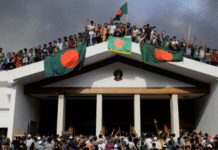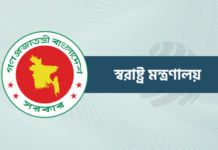The investigation agency under the International Crimes Tribunals has found evidence against nine allegations of 1971 war crimes, including conspiracy, genocide, arson, abduction and loot, committed by detained Maulana Abdus Sobhan in Pabna.
Briefing reporters on Saturday, coordinator of the Investigation Agency Abdul Hannan Khan said, ”After a through investigation, we’ve found a number of cogent evidence against Sobhan who had committed heinous crimes during the Liberation War in Pabna.”
The two investigators—M Motiur Rahman and M Noor Hossain–jointly have done the job in turns, which took 17 months to complete it, coordinator Hannan said .
Some 43 people have been made prosecution witnesses in the case, he added.
He further said the duo investigators will submit their finalised report to the Chief Prosecutor of the Tribunal on Sunday.
A total of 43 prosecution witnesses have been listed against war crimes suspect Sobhan, the number three man in the Jamaat-e-Ialami leadership, to prove the case, he said adding that the investigation was launched on April 14, 2012.
On September 20, 2012, Sobhan was held by the members of an army intelligence agency at Bangabandhu Bridge toll plaza in Tangail in connection with a case of violence. Later, the accused was handed over to the police.
Later, the tribunal upon a prosecution plea had shown Sobhan arrested in connection with the case of the 1971 crimes against humanity.
Replying to a question, Hannan said the investigation agency has so far completed 14 investigations against 14 war crime suspects. Among them, the ICT has already given verdict against six people, while 10 are under trial.
Investigation into 13 cases, including one against Jamaat-Islami Bangladesh as an organisation, is going on, Chief Investigator Sanaul Haque said, adding that it will require 3-4 months more to complete the investigation against Jamaat-e-Islami.
Source: UNBConnect










